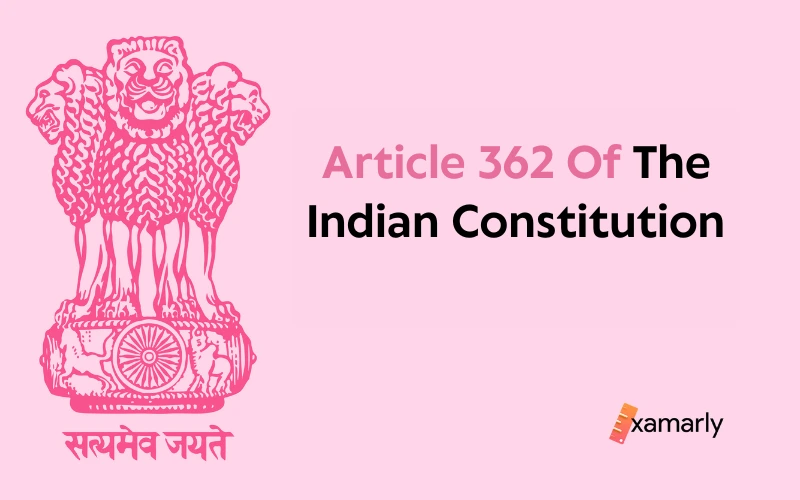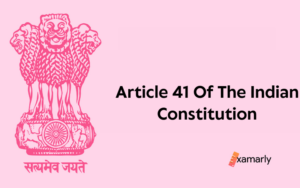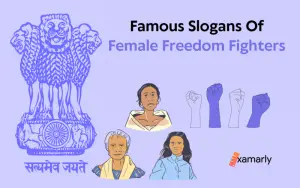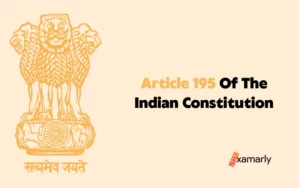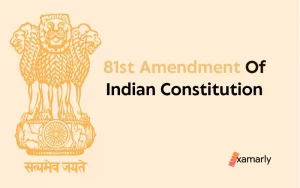The Constitution of India holds a special place in the hearts of the people of India. It is the supreme law of the land and lays down the framework for the functioning of the government and the rights and duties of its citizens. One such provision that was present in the Constitution was Article 362 of the Indian Constitution, which dealt with the rights and privileges of the rulers of the Indian States.
This Article is contained in Part XIX titled “Miscellaneous” of the constitution.
In this article, we will delve into Article 362 of the Constitution of India.
All About Article 362 Of The Indian Constitution
Article 362 of the Indian Constitution dealt with the rights and privileges of the rulers of Indian states. However, this article was removed by the 26th Amendment of the Constitution in 1971. This amendment effectively abolished the legal privileges and titles of the rulers of the former princely states in India and recognized them as common citizens.
The 26th Amendment was a significant milestone in the country’s history as it marked the final transition from a colonial and feudal system to a modern and democratic republic. After this amendment, the rulers of the former princely states lost their special privileges and were no longer treated differently from other citizens of India.
Significance Of Constitution (Twenty-Sixth Amendment) Act, 1971
The Constitution (Twenty-sixth Amendment) Act, 1971 was a significant amendment to the Indian Constitution because it abolished the privy purses and privileges of the rulers of former Indian states. This amendment was seen as necessary in order to create a more egalitarian social order and to bring an end to a system that was considered outdated and incompatible with the principles of a modern democratic nation.
The act also inserted a new article into the Constitution in order to terminate the recognition of these rulers and to extinguish all rights, liabilities, and obligations related to privy purses. This amendment was seen as an important step in the process of creating a more equitable and just society in India.
Winding Up
Article 362 of the Indian Constitution, which pertains to the rights and privileges of the Rulers of Indian States, has been omitted by the Constitution (Twenty-sixth Amendment). This amendment effectively eliminated the concept of royal privileges and rights for the Rulers of Indian States, bringing them in line with the rest of the citizenry in the country. The repeal of this article through the Twenty-sixth Amendment marked a significant milestone in the evolution of the Indian Constitution and the country’s journey towards a more equitable and just society.
FAQs On Article 362
Which Articles Were Repealed By The 26th Amendment Of The Constitution Of India?
Articles 291 and 362 are repealed under the 26th Amendment of the Indian Constitution.
Why Article 362 was repealed?
Article 362 of the Indian Constitution dealt with the rights and privileges of Rulers of Indian States. This Article was omitted by the Constitution (Twenty-sixth Amendment) Act, 1971. This amendment was made in light of the abolition of privy purses and privileges granted to the Rulers of Indian States, as part of the wider process of the reorganization of states in India. The abolition of privy purses and privileges was seen as a significant step towards the establishment of a more equal and democratic society in India. The repeal of Article 362, therefore, reflects the constitutional changes that were made in order to further the principles of equality and democracy in India.
Why Government End Privy Purses And Special Privileges?
An egalitarian social structure cannot accommodate the idea of rulership, with its privy purses and unique privileges unrelated to any contemporary activities and social goals. Therefore, the government has chosen to end the privy purses and privileges of the erstwhile Indian State rulers.


